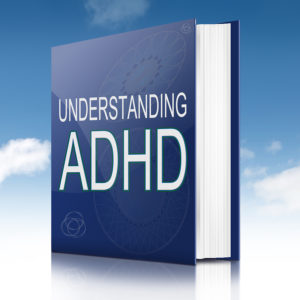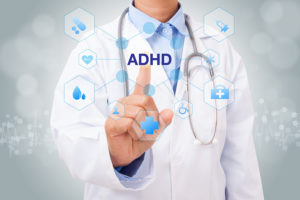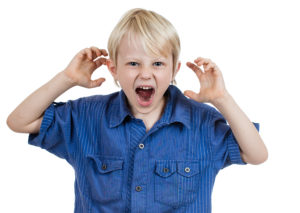Table of Contents
Key Takeaways
- B-Vitamins and multivitamins are crucial for brain health and neurotransmitter synthesis.
- Acetylcholine’s role in ADHD can be supported with nootropics like ALCAR and CDP-Choline.
- Nootropics like Ashwagandha and Bacopa Monnieri help repair damaged neuroreceptors in ADHD.
- Noopept enhances cognition, memory, and provides neuroprotection.
- Combining specific nootropics with essential vitamins can optimize brain function for managing ADHD symptoms.
Depending on the severity of your ADHD symptoms, you may be able to use nootropics as an alternative to prescription stimulants like Adderall, Ritalin, Vyvanse and their variations.
I experimented for a year by using nootropics in place of the 20 mg of Ritalin I had been using 3-times a day for several years. And for the most part, I was successful in taming my Adult ADD symptoms.
Adult ADD Nootropic Stack
The ADD/ADHD stack I use includes:
- Mind Lab Pro
- Performance Lab® Energy – twice per day
- CDP-Choline – twice per day
- ALCAR – 750 mg 1-time per day
- L-Tyrosine – 500 mg 3-times per day
- Sulbutiamine – 400 mg twice per day
- Aniracetam – 750 mg twice per day
- Vinpocetine – 10 mg 3-times per day
- Performance Lab® Omega-3 – 3 GelCaps per day
- 1 tablespoon unrefined Coconut Oil or MCT Oil– 3-times per day
- Performance Lab® NutriGenesis Multi – 4 caps per day
During my one-year stimulant holiday, the ingredients in Mind Lab Pro along with L-Tyrosine, CDP-Choline, and ALCAR (included in Performance Lab Energy) kept my dopamine, norepinephrine, and acetylcholine levels high enough to maintain focus, motivation and improve my memory. Vinpocetine kept my brain blood flow at optimal levels. And Aniracetam and Sulbutiamine improved my mood.
But after a year I decided to go back to using 20 mg of Ritalin twice per day. Because my workload had me writing 10 hours per day. And maintaining working relationships with 2 or 3 clients at once.
By adding Ritalin back to my stack I was able to reduce the time it would take to complete a project from 3 days to 1 ½ days. Proof to me that my overall brain health couldn’t make it with nootropics alone.
The beauty of continuing to use L-Tyrosine, CDP-Choline, and ALCAR even after I started using Ritalin again was that I avoided the stimulant “crash” that is so common late afternoon when using stimulants. And I was able to reduce the original 20 mg Ritalin 3-times per day down to only twice per day.
And I have not experienced building up tolerance to Ritalin that is so common when using stimulants to treat ADD or ADHD.
Your situation may be different, or ADHD symptoms not as severe. Only you can decide if nootropics can replace ADHD meds. The stack I describe on this page is designed to be used with or without stimulant meds.
Whether you use this stack with meds or without, you’ll need to discover for yourself what dosages of each nootropic are ideal for you. Because the amounts that work for me may not work as well for you. You may need less NALT and/or ALCAR.
Experimenting is the key to success with nootropics. And knowing as much as you can about what’s going on in your brain that needs to be fixed. But after many years of recommending this ADHD nootropic stack to people just like us around the world, we know this works.
The pre-made nootropic stacks mentioned in this post include:
Prescription “Smart Drugs” vs. Nootropics for ADHD
This post is in response to many emails and questions I’ve been getting about how to treat Attention Deficit/Hyperactivity Disorder (ADHD) or Attention Deficit Disorder (ADD) with nootropics.
So if you are dealing with ADHD, hopefully this post will help. Especially if you are using stimulants like Ritalin, Adderall, Vyvanse, Focalin, or any of the other stimulant prescribed for ADD/ADHD. Or you are trying to deal with ADHD naturally by avoiding prescription stimulants.
This information can also help if you are a student or executive who uses prescription “smart drugs” like Adderall or Modafinil to boost productivity.
Here we’ll dig into the causes of ADHD or ADD in your brain. Symptoms associated with ADHD. And what you can do using nootropics, or nootropics stacked with stimulants to correct ADHD symptoms.
I’ll also include ways to potentiate the effectiveness of prescription stimulants with nootropics so they work better.
If you’ve never ‘officially’ been diagnosed with ADHD, but some of this resonates with you, you could be ADHD or ADD. And this may point you to some answers.
I’ve been ADD all my life. (ADD is ADHD without the hyperactivity). But it wasn’t until about 16 years ago, that a very wise psychiatrist identified what was going on. And why I had been struggling with focus and other problems with behavior. That no amount of self-help books on focus and management could ever correct.
Ritalin turned the lights on for me. And completely changed my life for the better. This was the seed that sprouted my interest in neuroscience and nootropics. And ultimately launching Nootropics Expert®
What is ADHD & ADD?
Attention Deficit/Hyperactivity Disorder (ADHD) or Attention Deficit Disorder (ADD) are associated with attention and executive function in your brain.
Your prefrontal cortex directs behavior, thought and feeling which are all associated with working memory. This fundamental cognitive function is what most “healthy” people take for granted, are what make up executive function.
This executive function and working memory give you the ability to:
- Regulate your attention
- Inhibit inappropriate behavior and thought
- Monitor your actions
- Plan and organize your future
If you can’t focus on the task at hand, blurt things out at inappropriate times, have little control over your emotions or actions, and can’t seem to stick to that careful set of goals you wrote down, you may be ADHD.
The Role of Norepinephrine and Dopamine in ADHD
Norepinephrine and dopamine are the primary neurotransmitters involved in ADHD because they play an essential role in attention and thinking.[i]
The “inattentive” type of ADHD is related to issues with the norepinephrine, and the “hyperactive and impulsive” type of ADHD is linked to dopamine dysfunction.
These two neurotransmitters work in concert to maintain alertness, increase focus, sustain thought, effort, and motivation. The only difference between the two is the presence of a hydroxyl group. And dopamine is the precursor to norepinephrine synthesis in your brain.[ii]
Much of what we read about ADHD focuses on dopamine’s function in your brain. But norepinephrine (NE) plays a critical role in activating your reaction to events. And how you respond to the event.[iii] NE is essential for collecting information coming in through your senses. And then modulating your brain’s response.
Any disruption in this NE system can result in ADHD, Post Traumatic Stress Disorder (PTSD), sleep disorders and more.[iv]
For example, NE working with postsynaptic α2-adrenoceptors (α2-AR) in your brain play an essential role in helping you focus and eliminate distractions when you’re paying attention to something.[v]
This is just one example of what goes wrong with ADHD brain function. My point in bringing this all up is not to overwhelm you with neuroscience.
But to make clear that simply suggesting too much or too little of a single neurotransmitter like dopamine cannot explain the complexity of ADHD.
So using a nootropic like L-Tyrosine to amp up dopamine in your brain is often not enough to take care of ADHD symptoms. Or using Adderall with someone who has a problem with alpha2-receptor binding with norepinephrine may not get much benefit.
This is the reason that experimenting with various stimulants and/or nootropics is often the only way to find a long-term solution to keeping ADHD under control. And why some respond better to a drug like Ritalin and not as well to Adderall. Or vice versa.[vi]
And recent research shows serotonin and acetylcholine are involved too. Mostly the “hyperactivity” part of ADHD which includes movement, inattention, and impulsivity.[vii]
Smart Drugs Used to Treat ADHD Symptoms
If you are truly and clinically ADHD or ADD, it is unlikely that optimizing your diet, getting plenty of sleep, using nootropics, and exercising regularly will get the symptoms of ADHD under control.
The most severe forms of ADHD often benefit from using prescription medication. Otherwise known as “smart drugs” in some circles, these meds are typically amphetamines or methylphenidate.
The amphetamine-class of ADHD prescription drugs includes Adderall (75% dextroamphetamine salts and 25% levoamphetamine salts), Dextroamphetamine, and Vyvanse (Lisdexamfetamine).
The methylphenidate-class of ADHD medications includes methylphenidate (Ritalin) and its variants like Concerta, and Focalin.
Adderall and Ritalin both work with dopamine and norepinephrine in your brain. But through different mechanisms of action.
Ritalin is a pure uptake inhibitor of dopamine and norepinephrine without any other presynaptic activity.[viii] Adderall on the other hand, has additional presynaptic activity, releasing dopamine and norepinephrine from presynaptic neurons.
The idea for the last 60 years or so, has been if we could boost dopamine and norepinephrine in the brain, ADHD symptoms would go away. As long as we’re taking the medication.
Why Prescription Attention Deficit Hyperactivity Disorder Meds Often Don’t Work
 In an ideal world, taking one pill 2 or 3 times a day to treat ADHD would put your life back on track. And help you function like a ‘normal’ person.
In an ideal world, taking one pill 2 or 3 times a day to treat ADHD would put your life back on track. And help you function like a ‘normal’ person.
But real-world results often don’t work out as well as theory. For several reasons. For example, what if there’s not enough dopamine or norepinephrine in your brain in the first place? Then stimulants will not work as well as planned because they haven’t the neurotransmitters in place to work with.
You could also have problems with not enough or damaged neuroreceptors. Natural aging processes can slow blood flow or inhibit the production of neurotransmitters. A lack of acetylcholine could prevent your neurotransmitters from doing what they were designed to do.
This is where nootropics can help save the day in treating the symptoms of ADHD.
Optimizing Dopamine & Norepinephrine
 One of main culprits contributing to ADHD symptoms is a lack of dopamine (DA) and norepinephrine (NE) in your brain. Or your brain is not using the available DA and NE effectively.
One of main culprits contributing to ADHD symptoms is a lack of dopamine (DA) and norepinephrine (NE) in your brain. Or your brain is not using the available DA and NE effectively.
Stimulants like Adderall and Ritalin work to boost levels and use of these two critical neurotransmitters.
Production of dopamine and norepinephrine in your body and brain follows this metabolic pathway:
Phenylalanine → Tyrosine → L-DOPA → Dopamine → Norepinephrine
Dopamine is converted to norepinephrine by the enzyme dopamine β-monooxygenase, with O2 and ascorbic acid (Vitamin C) as cofactors.
Norepinephrine can be further converted into epinephrine by the enzyme phenylethanolamine N-methyltransferase with SAM-e as cofactor.
Nootropics to boost dopamine and norepinephrine include:
- L-Tyrosine – L-Tyrosine is the precursor to the synthesis of dopamine in your brain. L-Tyrosine enhances working memory, executive function, creative flow states, reduces stress, improves mood and is anti-anxiety.Suggested dosage of L-Tyrosine or NALT for ADHD is 350- 500 mg twice per day. I successfully stack 500 mg of NALT or L-Tyrosine 3-times per day. Once each time I dose with Ritalin, and a last dose mid-afternoon to prevent a stimulant crash later in the day.
- Mucuna Pruriens (L-Dopa) – Mucuna works as an antioxidant and heavy metal chelator, improves memory & cognition, reduces depression and boosts libido.L-Dopa is also the direct precursor to dopamine. Suggested dosage of Mucuna Pruriens is 250 – 500 mg per day. But if you’re just starting out with nootropics, I highly recommend using L-Tyrosine or NALT instead of Mucuna Pruriens. Because Mucuna can be more difficult to dose since it directly stimulates the production of dopamine. L-Tyrosine and NALT are more ‘forgiving’ when it comes to dosage.
- N-Acetyl L-Cysteine (NAC) – NAC is an amino acid that regulates the amount of glutamate and dopamine in your brain.NAC can be used to address the symptoms of ADHD. And may even help eliminate some of the negative side effects associated with prescription ADHD stimulants. Suggested dosage of NAC is 600 mg 3-times per day.
- Phosphatidylserine (PS) – PS can help improve alertness, attention, cognition, memory, recall and mood, and lower anxiety. All issues associated with ADHD.Phosphatidylserine is a phospholipid component of the membrane encasing every one of your brain cells. PS helps maintain the fluidity and permeability of brain cells. Improving the flow of dopamine and acetylcholine. Suggested dosage of PS is 100 mg 3-times per day.
- Pine Bark Extract – Pine Bark extract helps prevent decreases in dopamine and norepinephrine. And the glutathione (GSH) and GSH-disulphide reductase (GSSG-R) ratio. Neurotransmitter problems which contribute to hyperactivity in ADHD.Pine Bark extract also helps boost blood flow in the brain by increasing nitric oxide which helps dilate blood vessels. And it helps reduce oxidative stress, membrane damage, DNA damage, inflammation, and glycation.I’ve found one of the most potent forms of Pine Bark extract comes in both Mind Lab Pro® and Performance Lab® Mind.
A word of caution here in boosting the catecholamines dopamine and norepinephrine. Too much of either is not a good thing. In fact, excess levels of either will throw your neurotransmitter levels out of balance. And can cause anxiety, insomnia and panic attacks.
Taming Hyperactivity with Nootropic Supplements
The “H” in ADHD stands for hyperactivity. Boosting levels of dopamine and norepinephrine can help balance out hyperactivity. And help calm and focus your mind. But often simply boosting or balancing these neurotransmitters is not enough.
Recent studies show that serotonin and dopamine interaction also play a role in ADHD.[ix] Serotonin is involved in the uptake, synthesis and breakdown of dopamine in your brain. Problems with serotonin seem to contribute to behavior and impulse control.
Much more research needs to be done in this area of ADHD. But we can help control and balance serotonin with nootropics.
- 5-HTP – This amino acid is synthesized from the amino acid tryptophan. And 5-HTP is the immediate precursor to serotonin in your brain.5-HTP can help relieve anxiety and depression, fibromyalgia, insomnia, migraines and likely the hyperactivity, depression and anxiety associated with ADHD. Suggested dosage of 5-HTP is 50 mg up to 3-times per day. Please see my dosage notes and warnings before you try supplementing with 5-HTP.
- Ginseng – Ginseng helps calm anxiety, and boost attention, concentration and memory. Ginseng provides neuro-protective effects on the dopaminergic-pathway which can help with ADHD. And ginseng is a serotonin and norepinephrine reuptake inhibitor (SNRI).Suggested dosage of Ginseng is 100 – 400 mg per day.
- L-Theanine – L-Theanine commonly found in green tea helps boost alpha and theta brain waves, is anti-anxiety, boosts cognition and memory and reduces insomnia.L-Theanine also helps boost GABA, serotonin and dopamine levels in your brain. Suggested dosage of L-Theanine is 150 mg 2 – 3-times per day.
- Rhodiola Rosea – Rhodiola Rosea helps improve alertness, energy, memory and mood, is anti-anxiety and antidepressant, reduces fatigue and boosts memory and concentration.Rhodiola influences serotonin and norepinephrine levels in your brain. Suggested dosage of Rhodiola Rosea extract is 150 – 200 mg per day.
- Saffron – Saffron acts as a dopamine and norepinephrine reuptake inhibitor. Similar to how Ritalin works. A randomized double-blind study was conducted with 54 children 6-17 years old who were given 20 – 30 mg methylphenidate or 20 – 30 mg Saffron per day for 6 weeks. At the end of the study researchers concluded, “Short-term therapy with a saffron capsule showed the same efficacy compared with methylphenidate.”Suggested dosage of Saffron is 30 mg per day.
- Vitamin B6 (Pyridoxine) – Vitamin B6 helps your brain make serotonin, norepinephrine and melatonin. Suggested dosage of B6 is up to 100 mg per day.
- Vitamin B9 (Folate) – Folate (NOT folic acid) as a nootropic helps your brain make dopamine, epinephrine, norepinephrine and serotonin. Suggested dosage of Folate is 400 mcg per day.
- Vitamin B12 (methylcobalamin) – is a cofactor in the synthesis of neurotransmitters acetylcholine, dopamine, GABA, norepinephrine, and serotonin. Suggest dosage of B12 is 100 mcg per day.
B-Vitamins are Critical in Controlling ADHD
Take note that several of the B-Vitamin group are involved in the production of the neurotransmitters involved in ADHD. I recommend adding a good B-Vitamin Complex that include methylfolate (not folic acid) and methylcobalamin (not cyanocobalamin) to your stack. Both in a pure nootropic stack as well as when using any of the ADHD prescription stimulants.
But it’s not only the B-Vitamins that are required for a healthy, fully functioning brain. We also need each of the 13 vitamins and 13 minerals needed for everything from blood flow, neurotransmitter synthesis and release, brain signaling, and neuroprotection.
I’ve found the easiest way to make sure my ADD brain gets all the vitamins and minerals it needs every day is to also use a multivitamin/mineral supplement.
The best I’ve found so far is the multivitamin called Performance Lab® NutriGenesis Multi. It’s better than the “raw-food” multi I was using for years. And makes a difference I can actually feel.
But please note that this multi is in addition to a B-Vitamin Complex because the ADHD brain needs more of these critical nutrients than what is normally in any good multivitamin.
The Role of Acetylcholine in ADHD
Researchers at Vanderbilt University Medical Center discovered that there are three types of ADHD.
We’ve already covered the “inattentive” type that is related to issues with the norepinephrine transporter gene. And the link to the dopamine transporter gene in the “hyperactive and impulsive” type.
But the research team now report that a variation in the choline transporter gene is associated with a “combined” type of ADHD. Symptoms include both inattention and hyperactivity/impulsivity.
Choline is required to synthesize acetylcholine (ACh) which is needed for memory, motor-control, focus, learning, concentration, and cognition.
If you have the “combined” type of ADHD it’s likely due to a mutation in this choline transporter gene variation.
Nootropics to boost acetylcholine include:
- ALCAR (Acetyl-L-Carnitine) – ALCAR donates a methyl group in the presence of Coenzyme-A for the synthesis of acetylcholine. And it’s also a shuttle transport for fatty acids through brain cell membranes. It shuttles fatty acids into mitochondria for ATP synthesis, and shuttles toxic byproducts out.
Research from the Linus Pauling Institute shows ALCAR will restore mitochondrial function, replenish age-related changes to mitochondrial structure, and helps replenish acetylcholine levels to your brain and body.
And other studies show that ALCAR stimulates nerve growth factor. Helping support survival and growth of neurons. Which is particularly important for the ADHD brain and especially when using prescription stimulants that may be tough on neurons.
- Alpha Lipoic Acid (R-LA) – Alpha Lipoic Acid increases acetylcholine production by activation of choline acetyltransferase and increases glucose uptake. This process supplies more Acetyl-CoA for the production of acetylcholine.
Alpha Lipoic Acid enhances insulin-stimulated glucose transport and metabolism for better brain cell performance. And R-Lipoic Acid provides strong antioxidant support because it helps regenerate and recycle existing antioxidants in your brain including Vitamins C & E, glutathione, and CoQ10.
I’ve since switched the ALCAR supplement in my ADD stack to Performance Lab® Energy because this pre-formulated energy stack contains my preferred dose of ALCAR. But note that I also take another 500 mg of ALCAR with L-Tyrosine late afternoon to prevent a stimulant crash.
Performance Lab® Energy also contains Alpha Lipoic Acid and ALCAR which helps my ADD brain produce acetylcholine.
- CDP-Choline (Citicoline) – Citicoline helps synthesize phosphatidylcholine (PC), a major phospholipid found in brain cell membranes. And provides choline for the synthesis of acetylcholine while providing antioxidant activity.
The CDP-Choline (Citicoline) in my ADD stack is supplied by Mind Lab Pro® which is the base of my nootropic stack.
But a suitable alternative to MLP is Performance Lab® Mind which contains the branded form of citicoline called Cognizin®.
Performance Lab® Mind and Mind Lab Pro® also contain L-Tyrosine, Phosphatidylserine (PS), and Maritime Pine Bark extract.
Repairing Neuroreceptors Needed to Control ADHD
One of the issues with neurotransmitters and ADHD are damaged or non-existent receptors. Dopamine, norepinephrine and serotonin have less receptors to bind to for cognition and mood control.
Once again, nootropics come to the rescue in helping control ADHD. You can add one of these nootropics to your stack to help boost neuron and receptor health.
- Ashwagandha – This adaptogen, Ashwagandha helps reduce anxiety and depression. And helps reconstruct axons, dendrites and synapses involved in neurotransmitter signaling in your brain.Suggested dosage of Ashwagandha extract is 250 – 500 mg per day.
- Bacopa Monnieri – Bacopa helps boost memory and cognition, improves mood, and reduces stress. This adaptogen affects brain levels of acetylcholine needed for neurotransmitter signaling.And the two active components of Bacopa Monnieri called bacosides A and B not only improves signaling of electrical impulses between neurons in your brain. Bacosides also help rebuild damaged neurons. Suggested dosage of Bacopa is up to 450 mg per day.
- Lion’s Mane – Lion’s Mane Mushroom is known for stimulating Nerve Growth Factor, improving cognition and memory, and relieving depression.Lion’s Mane stimulates the repair and creation of neurons in your brain. Neurons needed for dopamine and norepinephrine to control ADHD. Suggested dosage of Lion’s Mane Mushroom starts at 500 mg per day. Note: that there’s an effective 500 mg dose of Lion’s Mane full-spectrum fruiting body in each dose of Mind Lab Pro®
- Noopept – Noopept helps boost cognition, memory, learning, perception, logical thinking and mood. Noopept increases Nerve Growth Factor, and Brain-Derived Neurotrophic Factor (BDNF) critical for neuroplasticity and Long-Term Potentiation critical for long-term memory.Noopept also prevents the release of excess glutamate in your brain. Providing potent neuroprotection for neurons and reducing damage. Suggested dosage of Noopept is 10 – 30 mg per day.
Please note that I haven’t linked through to supporting clinical studies for each of the nootropics I listed above. But you can click through to my full review of each nootropic for extensive research supporting each supplement.
Nootropics for Kids
ADHD and ADD is most often diagnosed in children. The latest statistics (2011) from the CDC in the USA shows about 11% of children 4 – 17 years of age (6.4 million) have been diagnosed ADHD.[x] And that’s just for the USA.
Although ADHD is usually first diagnosed in children, it often lasts into adulthood. I sometime wonder how my life would have been different if I had been declared ADD when I was a kid.
But it wasn’t until the late 1960’s that the American Psychiatric Association formally recognized ADHD as a mental health disorder. I wasn’t declared Adult ADD until much later.
The thing is many parents are wary about putting their children on powerful, prescription ADHD meds. Kids’ brains continue to develop until your early 20’s. So is it a problem messing with brain chemistry at such a young age? Only time will tell and if the benefits outweigh any potential risk.
Hence the reason why parents are looking for ‘natural’ alternatives like nootropics to treat ADHD in children. But are nootropic supplements any safer than prescription stimulants?
Common sense tells me that using L-Tyrosine could be safer than Ritalin for boosting dopamine. And Rhodiola Rosea could be safer than stimulants or antidepressants for taming hyperactivity.
But many children with ADHD, natural supplements may not be enough. I’m not a doctor, and don’t even play one on TV. I’m an ordinary biohacker who has learned as much as I can to help myself. And fix my own cognitive performance issues. Including Adult ADD.
So I highly recommend you find and work with an open-minded psychiatrist with your child. You may be pleasantly surprised to find you may be able to reduce or eliminate prescription ADHD meds altogether to enhance cognitive functions. And maybe not. But the long-term health of your child could be worth the time investment to find out.
In Summary
I’ve been wanting to write this post since I started Nootropics Expert®. If you are ADHD or ADD, I hope you found this useful. And I’d appreciate your feedback, and share your experience with treating ADHD with nootropics in the comments section of this post below.
Please share this post with anyone you think would benefit. Including discussions about nootropics for ADHD on reddit or Longecity.
One final note. Neurotransmitter balance is key to taming ADHD. I strongly caution you to take it slow if you’re just starting out with nootropics. Carefully read each of the extended articles in the List of Nootropics you are considering trying.
You need to be careful about side effects, prescription drug interactions, dosages and how your body reacts to each supplement to ensure healthy brain function.
But I’m confident that with careful planning and a long-term commitment, your cognitive enhancement will be just as successful as I have been in living and thriving with my Adult ADD.








Join The Discussion - 851 comments
Kat S
March 7, 2021
Hi David,
It was such a relief to find this site, and specifically this article! Thank you so much for sharing your knowledge and experience with those of us who are seeking to improve our ADHD experience through nootropics, and for making yourself available to answer so many questions.
I’d like to ask a few of my own if that’s OK. As a little background – I was diagnosed with combined type ADHD last year, in my early 30s, and have been taking 50/60mg lisdexamfetamine for 9 months (I switch through the month as my oestrogen production rises and dips) and 2mg guanfacine for around 5. I did briefly try a SA dose of lisdexamfetamine in the evenings to extend my regular dose’s effects but the crash I experienced was terrible, so I’m loathe to try any other SA stimulant. I don’t get a discernible crash on my current meds.
I’ve also recently started “Cosmic Calm”, a nootropic to help with sleep https://inspiriko.co.uk/products/cosmic-calm-night-time-nootropic-complex. A one-month trial of 2mg melatonin prior to this didn’t do much, however I have found my sleep to be much deeper and less disturbed since starting it.
Having just read your article about 5 HPT, I’ve realised that cosmic calm contains around 66mg of 5 HPT at the recommended dose (2 caps).
My meds are definitely helping (guanfacine’s effect on my RSD has been life-changing), and I do not want to increase their dosages, but because of poor nutrition and sleep issues I feel like they’re often only sufficing to “bail out water” rather than putting “wind in my sails”! I still struggle to get motivated or to stay on task once I have, or get bogged down in details. I also have trouble with my working memory, particularly when writing (my hobby) and many mental tasks seem to take me that much longer than they do my peers.
My questions would be –
– I’m in the unfortunate position of having to pay private care and prescription fees, on top of expensive tests I had to undergo initially. While I’m of the opinion that the pro/performance lab nootropics are fairly priced, I’m not sure I can stretch to a further £120 p/month to take on MLP, Multi, Energy, Omega 3 and MCT. If you were able to strip down your recommendations to the bare essentials, what would they be? I don’t want to find out I’ve been missing out on the full benefits of something I’m taking because of something I’m not :\
– would the 66mg of 5 HPT in cosmic calm pose an issue moving forward with the nootropics you would recommend I try?
– slightly tangential, but would the vitamin c dose (or anything else) in performance lab’s multi cause issues with the rapid excretion of lisdexamfetamine? I’m trying to shift my diet to a more alkaline one so hope that if so, that might combat it.
Phew! Sorry for such a long post, but I’m so relieved to be able to ask these questions. I’ve reached out to several ADHD-specific nutritionists who offer free consults (without going too deeply into the specifics of my situation) but haven’t heard back from a single one! It’s so exhausting to constantly get let down that way… particularly if you have ADHD!!
Many thanks again,
Kat
David Tomen
March 8, 2021
Kat, if you’re constrained by budget then use 500 mg L-Tyrosine twice per day, 300 mg CDP-Choline twice per day, 500 mg ALCAR twice per day, 1,000 mg DHA per day and a Multi.
60 mg 5-HTP should not be a problem. Nor should the Vitamin C content in the Performance Lab Multi.
Gen.Jack
March 4, 2021
Hi David,
I was diagnosed ADD and on Concerta XL 36mg, i am having below list of nutrition in the morning and evening to eliminate the side effect of the stimulant.
8a.m. and 4pm. (concerta XL on 8:30a.m.)
Omega3 1g(500mg EPA, 250mg DHA)
L-theanine 200mg
LionMane8:1 500mg
Magnesium L-Threonate 2000mg (magnesium 144mg)
vinpocetine 10mg
Choline/inositol (500mg/500mg)
French maritime pine bark extract 100mg
Smart PS Phosphatide softgel (phosphatidylserine from soy 100mg)
life extension B-Complex (900mg)
Lithium Orotate (5mg)
Sulbutiamine 200mg
N-Acetyl L-Tyrosine 350mg
NA-R-ALA R-lioc Acid 125mg
ALCAR 600mg
PQQ 20mg
CoQ10 100mg
I am taking away CoQ10 from the stack due to it causes my eye blurry. this has been 3 days no CoQ10 in daily stack. anyhow, i still doesn’t feel that can focus enough to do my job. and still having very slight eye blurry.
My head like feeling overwhelmed with mild brain fog. is that something wrong with the ADD medicine dosage or my stack ?
Should i ask your
Gen.Jack
March 4, 2021
if any anything i missed out? i am glad that with the help of the stimulant that really opened my eye and let me complete quite a huge number of task.
anyhow, i having fear attacks during the late evening ~6pm, could be the end of the concerta XL.
did i missed out anything?
thanks for your article about ADHD and this encourage me goto see psychiatrist. otherwise i can’t imagine how i am going to continues live like a mess / unorganized without notice i do have a problem.
thank you David
David Tomen
March 5, 2021
GEnJack, ll you need to do to avoid a stimulant crash is use your ADD stack for a 3rd dose around 4 PM. Which should help you avoid the stimulant crash.
So a stack at 8 AM, then again at noon then again around 4 PM
rob
March 1, 2021
How come Mind Lab Pro doesn’t add Alpha GPC, ALCAR, L-Tyrosine, Sulbutiamine, Vinpocetine into their pre made stacks? Is noopept considered an Racetam? I looked at your Racetam lists and it wasn’t listed there, unless I missed something. The other vitamins that you listed that are not in the pre made stacks where do you purchase them? Alpha GPC, ALCAR, L Tyrosine etc. The racetam Aniracetam do you have to cycle off of these or can you take them year around? Same with Mind Lab Pro, can I take it everyday? Last question. Do you still take Tryptophan at night? I didn’t see it on your list up above. So the best way to repair a damaged brain is through L-Tyrosine, Lions Mane, Noopept, Bacopa Monnieri, Ashwagandha. Would Tryptophan also be included in this? Thank you David for what you are doing for all of us. I have been sharing your website with countless people.
David Tomen
March 2, 2021
Rob, Mind Lab Pro has Citicoline so doesn’t need Alpha GPC. And includes N-Acetyl L-Tyrosine instead of L-Tyrosine. The swapped out Vinpocetine for Pine Bark Extract because the former is considered a prescription drug in many countries. Which prevented them from shipping Mind Lab Pro to those countries.
Noopept is often lumped into the racetam list but is not a true racetam because it is not built on a pyrrolidone nucleus core. I get Alpha GPC and L-Tyrosine from two separate stores on Amazon. And ALCAR and Aniracetam from HR Supplements. I do not cycle Aniracetam or Mind Lab Pro because I don’t feel the need to as some other do.
And I still use L-Tryptophan before bed to raise serotonin because I need to keep it in balance with the dopamine I’m raising during the day. The best way to repair a “damaged brain” is by increasing BDNF. Do a search of Nootropics Expert for BDNF for a list.
rob
March 3, 2021
Can you provide a link to the stores you buy from on amazon that contain the supplements you use outside of performance lab? I don’t trust amazon for anything, it seems that the vast majority of the products being sold are faked. So like Alpha GPC, ALCAR, L-Tyrosine, Aniracetam, Vinpocetine, Sulbutiamine, Lions mane, Tryptophan, etc. Also, I see you are using L-tyrosine with the NALT? I am confused arnt they both for dopamine? Thank you for everything David!
David Tomen
March 4, 2021
Rob, it’s a great question. But there are too many stores that I buy from to list here.
However, I’ll give you two examples. I chose these because all they contain is pure powder with zero “other ingredients” in capsule.
L-Tyrosine: https://amzn.to/3uRGWro
ALCAR: https://amzn.to/3c3daqV
I have included a source for some of the supplements you mentioned in the “Available Forms” section of each review.
BTW, the only reason I use NALT is because it’s an ingredient in Mind Lab Pro. I need more L-Tyrosine that what is in Mind Lab Pro. But that’s just me. Not everyone’s brain is as hungry for more dopamine as mine.
rob
March 4, 2021
Do you worry about TMAO with L carnitine?
David Tomen
March 5, 2021
No. Sensationalized crap by the mainstream press who misread a small clinical study of red meat consumption in 10 people. Life Extension wrote a great rebuttal to this here: https://www.lifeextension.com/magazine/2013/8/rebuttal-to-attack-against-carnitine//
And yet this still gets picked up by bloggers looking for clicks. Beware of what you read on the Internet.
wong
March 1, 2021
Hi david
After reading your post, I believe i may have ADD, inattentive type since i was young which means 22 years ago. I cannot focus too long during a lecture or when someone is talking to me perhaps for more than 5 mins. my mind start to drift away. I would like to avoid on stimulants like Adderall, Ritalin, Vyvanse .
I am currently on
NutriGenesis®Multi for Men
DHA
B complex
ALCAR (Acetyl-L-Carnitine),
Alpha Lipoic Acid (R-LA) ,
CQ10
L carnosine
NAC
Berberine
L-Tyrosine ,
vinpocetine,
L theanie
L tryphotoan
Magnesium
i feel i am getting better but still not ” best of the best”
Should i take Ashwagandha ,Bacopa Monnieri ,Lion’s Mane or Noopept to boost my boost receptor health?
I would like to have inattentiveness cure.
David Tomen
March 2, 2021
Wong, Lion’s Mane would be the best for receptor health. And Ashwagandha if you can use it. Not everyone can.
The other thing is make sure you have the dosage and timing correct for your existing stack. For example, L-Tyrosine 500 mg 2 or 3-times per day. NAC 600 mg 3-times per day. Several other supplements in your stack require multi-dosing during the day as well. And that is detailed in the “Dosage Notes” section of each review for each supplement.
Manic
March 3, 2021
Hi, have you seen any mention about mania after Lions Mane? Or after boosting BDNF/BND and neurogenesis in general, because I afterwards realized using 6-7 substances with neurogen./-protective etc properties.
It’s not a big deal, there was other factors, but I need to be carefull — I skipped hypomania and went 1-100 in 10min, I had to force myself to i.v big amphetamine dose ’cause it’s instant and always working method.
Ironic situation where speed iv was the right thigh, hard af end feeling as good as neurochemically possible in purpose.
David Tomen
March 3, 2021
Manic, I have never heard of Lion’s Mane causing mania. I don’t think it’s physically possible.
Jem
February 23, 2021
Hi David,
I wrote a few months back about my issues supplementing choline and the depression it always seemed to cause me. You advised me to reduce the dose, great advice of course. Problem is I couldn’t even tolerate it in small amounts, even one dose of Mind Lab Pro left me feeling down. I wanted to provide an update on how I’ve worked to resolve this in case it helps anyone.
I’ve always suspected I have an issue with both acetylcholine and dopamine signalling due to my ADHD (poor concentration, motivation, impulsiveness, poor working memory) so it really surprised me that acetylcholine always seemed to make me feel depressed and spaced out when I was so convinced my brain needed more of it.
So I got onto the research (some studies linked below). It seems that as well as increasing acetylcholine activity, many cholinergic nootropics work to increase dopamine receptor density with chronic use (CDP-choline, sulbutiamine, ALCAR all do this), yet all of these were making me depressed every time I took them. In the last study below on Sulbutiamine, it mentions “Acute sulbutiamine injection led to a decrease of the DA levels in the prefrontal cortex” but chronic use lead to “an increase of D1 dopaminergic (DA) binding sites was measured both in the prefrontal and the cingular cortex.” So it seems that (and this is probably an oversimplification) the mechanism of action to increasing receptor density with chronic use is by reducing dopamine in the short term. So that got me thinking, could this depression and blah feeling from cholinergics just be caused by my dopamine taking a massive hit every time I use them, do I just need to lower my dosage a bit and stick it out and give my brain time to respond.
So as a result, I decided to go even more slowly. One Mind Lab Pro capsule per day, no other cholinergics to start with, but continuing on L-Tyrosine, B-Vitamins and PL Multi etc. Once I was tolerating this I introduced the ALCAR back in again, 500mg per day, depression came back a bit, I decided to just ride it out this time as it wasn’t too severe. Lo and behold it started to get better and my motivation started to increase…. long story short, I’m now on a full Mind Lab Pro dose per day, 2 doses of ALCAR, Sulbutiamine twice per day and will soon introduce aniracetam along with some Alpha GPC. I’m feeling better then ever and can feel the effects of better dopamine function and increased focus.
My assumption from all of this is that I just needed to give my brain and the nootropics time to up-regulate my dopamine receptors. It’s definitely a marathon, not a sprint.
https://bpspubs.onlinelibrary.wiley.com/doi/abs/10.1111/j.1476-5381.1991.tb12471.x
https://link.springer.com/article/10.1007/s12035-016-0293-5
https://www.sciencedirect.com/science/article/abs/pii/S0304394000014208?via%3Dihub
Alex
February 17, 2021
Dear David—
Thank you for this terrific resource.
I’m a 50-year-old man who’s recently been diagnosed with ADHD (inattentive type). I also suffer from anxiety and anxiety-related sleep problems (poor and not enough sleep, insomnia, bruxism, etc.). I’m not a candidate for stimulants because of a mostly harmless cardiac pre-excitation syndrome called LGL (though my psychiatrist wants to try Strattera to treat the ADHD). And I take small quantities of Celexa (10mg/daily) and Nadolol (10mg/daily) for the anxiety and heart palpitations.
I would love to try to treat my ADHD (and anxiety) naturally, but am totally new to the world of supplements. Is there a method of beginning gradually with of a few of your recommendations before ramping up to the full stack?
Thank you,
Alex
David Tomen
February 18, 2021
Alex, there’s a yellow box near the top of this article. Get the first 5 supplements in that list along with the bottom 3 supplements.
Try the first one for a day to see how you react. If nothing negative happens add the next and use it for a day or two. If nothing bad happens add the next, etc.
Follow dosage recommendations and timing for each. If you get to the end without any side effects or negative reactions you’ll be well on your way to treating ADHD naturally and safely. And it will work with prescription stimulants as well if you decide to tr Strattera.
Alex
February 21, 2021
Thank you so much.
Anatoly Shestakov
February 17, 2021
Hi David.
Any suggestion about stack for child 11 years old with ADHD?
Thanks a lot
David Tomen
February 17, 2021
Anatoly, I’m not qualified to recommend nootropic supplements for children because I’m not a pediatrician. Don’t even play one on TV!
If it was my kid I’d use the ADHD protocol described in the above article but reduce the dosage of each supplement to 1/3 of the adult dosage. And see if that worked.
Maria
February 16, 2021
Hello David! I have been taking Ritalin for a year now and as I am building a tolerance to it, I have been researching Nootropics to help decrease my tolerance as well as have the full effect of the Ritalin again without upping my dose. The problem is, the more I research the more confuse I get about what and when I should be taking to help my situation.
Just to give you some context, I’m a 24 year old student, 50kg with a healthy lifestyle (even though I don’t work out).
After struggling with depression and social anxiety my whole life, I finally have been prescribed medication that works, so for the last 3-4 years, this was my routine:
In the morning:
40mg of paroxtine
100mg of lamotrigine
150mg of wellbutrin
Before bed:
100mg of lamotrigine
After struggling with my memory, motivation and focus, my doctor prescribed me 30mg of Ritalin LA for the days I have to work/study, having breaks on the weekends.
A year has passed since I started and my life has changed completely.
I was able to finish my drivers licence (as before I was in such a foggy state of mind, I could never pass the driving exam), I passed with great grades in all my exams, and got a summer internship where I worked for 8h a day with no problem (where before the Ritalin this would be unthinkable for me).
No side effects after the first month, i feel hungry as usual, my mood is stable and my life is well.
Fast forward a year, and my doctor was surprised by how well I have responded to the Ritalin, even its effects on my day to day life improvements, not only on my study abilities, as it was expected. So she prescribed 20mg of Ritalin LA on my every day life, and 30mg for when I need to study, and having breaks on the weekend, when so its possible.
The problem is, the 30mg is no longer effective when I study, and I think I have developed a tolerance for it. I need it to be as effective as it once was but I don’t want to up my dose as I am taking so many meds as it is..
What do you think I should do to help with the tolerance and to make it more effective again? And when should I take what? Going trough finals right now and could really use some help!
thank you,xx
David Tomen
February 17, 2021
Maria, go back to the top of this article and read it all the way through. What you need is in this article. Your brain needs more dopamine and acetylcholine for Ritalin to work. The nootropic stack I describe in this article does that.